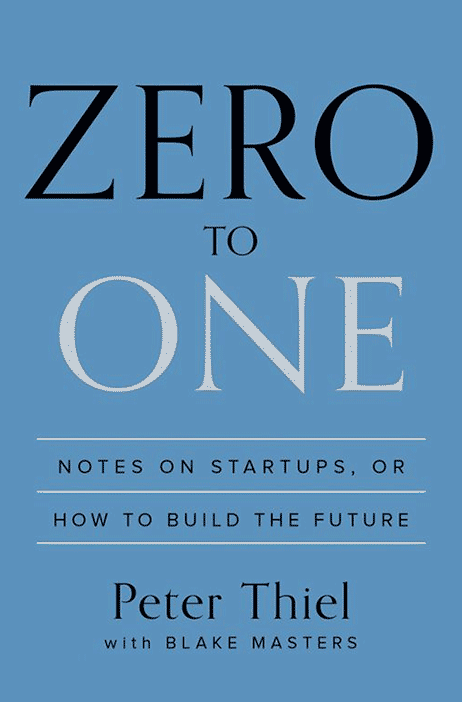5 Things I Would Do If I Were Starting Affiliate Marketing Today
“What would you do if you were starting from scratch in affiliate marketing today?”
This is one of those questions that pops up on forums, and lands in my inbox often.
It’s difficult to answer.
Mainly because it suggests we should be able to predict where our future money lies.
I don’t think there’s a single affiliate who doesn’t wish he broke in to the industry a year earlier. The ‘industry one year ago’ is a rosier place.
It always is, and always will be.
That’s because:
Successful strategies are only obvious in hindsight.
We feel pretty stupid when we miss them, but it’s a given that most of us will.
That’s why if I were starting affiliate marketing today, I would worry less about imminent opportunities — and more about the systems, processes and relationships required to take advantage of them.
Here are five tips to help you get started.
1. I would build a war chest of funds using my current skill set.
It is critical that you have a decent sized budget if you want to pursue paid traffic arbitrage.
Note: I have explained the core differences between free traffic vs. paid traffic in my updated intro for beginners.
Ideally you should be able to spend at least $100/day collecting data.
That’s not to say you should be losing $100/day.
Fuck me, if you’re spending $100/day and making $0/day — forget what anybody says about perseverance — pause that shit and get back to the drawing board.
Somewhere along the way, you’ve made a huge mistake.
Most people who land in this industry have key skills that can be used to build a war chest of funds.
Whether you are a writer, a designer, a developer, or a sales man — you can find work online.
These sites have thousands of jobs available:
- Odesk
- Elance
- Guru
- Demand Studios
- iFreelance
- Freelance Writing Gigs
- Get a Coder
- 99 Designs
- Or try the service sections of Internet Marketing forums (I regularly comb these for short-term hires)
Alternatively, you can get a conventional full or part time job.
Why are affiliates allergic to working 9-5? It makes no sense.
There is no shame in collecting a pay cheque from ‘The Man’.
If money is your primary restraint, I would say that it’s actually a pretty bloody smart idea.
2. I would invest in a good VPN and study my chosen market obsessively.
A Virtual Private Network (VPN) lets you access websites using an IP in a different country.
Why would you want to do this?
To spy on foreign ads and affiliate campaigns, of course.
There are no secrets in affiliate marketing.
Most profitable campaigns are running in full view of the public.
You can use spy tools like WhatRunsWhere to harvest banners and landing pages, but these are often lacking in context.
The best way to see which creatives are dominant is to load up a VPN, access a placement, and note which banners appear first (and most often).
For this, I use HideMyAss. It has servers in over 128 countries, is pretty reliable, and works on mobile phones.
Note: A monthly charge to ‘HideMyAss’ is definitely one of the more interesting expenses on my bank statements. Be prepared to explain to your accountant what ’Spy Software’ actually means, lest he fear your affiliate business is a racket for the Russians.
If you don’t want to shell out on a VPN, you can crawl the web at a snail’s pace by Googling ‘proxies in [country here]’ and trying them one-by-one.
Once you have access to dozens of countries, you can start gathering intelligence on any markets that are active with affiliates.
You can see exactly what offers are being run (without getting redirected), and you can jack all manner of useful creatives.
3. I would learn by osmosis — and gain access to key players.
If you want to find an affiliate mentor; somebody to hold your hand, to teach you the ropes; then my best advice is this:
Snap off your dick, book in some surgery, reinvent yourself as a beautiful woman — and hope for the best.
For everybody else, I wish the very best of British to you.
I don’t believe mentor arrangements work unless they are mutually beneficial.
That means you need to bring useful skills to the table (available for free), or a knack for honeybadgering freebies, the likes of which is beyond the scope of this blog.
Here’s the sad truth:
Inside information is at a premium for newbie affiliates.
The guys who need the attention of their AMs (Affiliate Managers) are often the guys who the AM has little incentive to work with.
Your affiliate manager could be handling dozens, even hundreds, of accounts.
Imagine a Skype wall with “Hey, how are u?” repeated ad infinitum.
Their attention goes, firstly, to the volume players who already generate good revenue.
Forget the Pareto Principle. We’re talking 95/5 laws of revenue distribution here.
With that said, you will need to come up with some novel ways of extracting information from key industry figures:
- Your affiliate managers
- Traffic source reps
- Your direct competition
Now, if I were starting my career today, I would be mind-mapping the chains of power that bind the industry together — and then finding ways to break in to them.
The one playground that is fair game for seducing all three parties above is the conference circuit.
Once you know who you need to target in your market of choice, research where (and how) to access them.
This is where you need to position yourself favourably:
Affiliate managers… respond well to the illusion of an already successful affiliate. Pretend you are running traffic elsewhere.
Traffic source reps… respond well to the idea that you are not actually an affiliate. Pretend you run a ‘performance marketing agency’.
Your competition… responds well to legitimate information, or flattery. No pretending here. Suck up or cough up.
I’ve met a bunch of newbie affiliates at events this year.
While I don’t know how their businesses have progressed since, I know for sure that they made the right decision in going to events where they’d network with legitimate affiliate marketers.
This form of learning by osmosis — for newbies and veterans alike — is vital for picking up signals about where the industry is heading.
Good places to start include Affiliate Summit, AdTech, and whatever annual meetup your network of choice is currently pimping.
4. I would focus on out-working the competition.
How do you build a competitive advantage when your competitors are richer, more experienced and better connected than you?
The answer is by starting small, keeping lean and making moves that — for whatever reason — your competitors won’t.
Stay under the radar and out-work the competition.
The best way to do this is to corner a small segment of a market that you already know to be profitable.
The German dating market is profitable. It’s also fiercely competitive.
A newbie entering these waters is going to be swallowed up by one of the many great white sharks, AKA your direct competition.
So you start in shallow waters. You ask questions about the huge German dating market and you segment it in to smaller chunks.
There are many ways you can do this: from age, to cities, to needs, to marital profiling, to disabilities, to shared hobbies.
The dating market is a great example because it serves a universal need (to find a companion) with endless smaller pockets of demographics that can be targeted.
What you will find is that your biggest competitors are drunk on their economies of scale. They won’t bother to devise campaigns for the smaller traffic sources, or the minority demographics. If they do, it will be an afterthought.
This leaves the path clear for a newbie affiliate to sweep in and serve those demographics with a message that strikes closer to home.
While a small budget demands that you out-work the competition, take note: this is not a scalable advantage once you enter the mass markets.
To be a dominant affiliate in the big-money open waters, you need to build structural advantages in to your business.
By definition, an effective advantage must not be easy for a newbie affiliate to replicate. I’ve referenced some of the more popular strategies here.
Of course, it’s a double edged sword.
Dominant affiliates rely on structural advantages to stay profitable. In doing so, they sacrifice an element of creative desperation.
Dave Trott covers the topic well with this excellent piece on Revolution vs. Maintenance.
5. I would choose a low CPA/CPI niche
There are two benefits to working with low payout offers.
The first is that they are easier to optimise.
If an offer pays out $2, you can make a decision on its viability with relatively little ad spend.
$20 spent and no conversions? Time to pivot.
The second reason is that for a newbie, breaking the pattern of zero conversions is important.
You want proof that affiliate marketing works?
You’ll get it faster by pushing offers that don’t require a large payment from the consumer — in other words, offers that don’t require a hard-sell.
This proof can morph in to motivation, which can snowball in to self-belief and more patience in the long run.
It’s easier to stay motivated while the conversion column is moving (and the data is taking on some meaning).
The good news is that there are tons of offers in emerging markets where conversions are rampant and the cost of traffic is cheap.
The Middle East and South Asia are prime examples. LATAM is another exciting growth area.
By focusing on these regions, you can get some conversions under your belt. You can learn how each traffic source works without selling off your left kidney to pay for the advertising.
The faster you get away from theory and in to the realms of collecting data, the sooner you can call yourself an affiliate.
To be blunt:
These are the five things I would do if I was starting affiliate marketing today:
- Build a testing budget where I can spend at least $100/day.
- Invest in a VPN and analyse the top-bidding affiliates in each country.
- Build key relationships with affiliate managers, traffic source reps and direct competitors.
- Search for under-served segments in profitable markets.
- Stick to low-paying offers and gather data fast.
What are you currently doing?
Have I missed something that can light a rocket up the arse and catapult newbies to success?
Interested to hear.






Hey Finch, Great post.. I just have a question about the budget of 100 dollars a day. Is it 100…